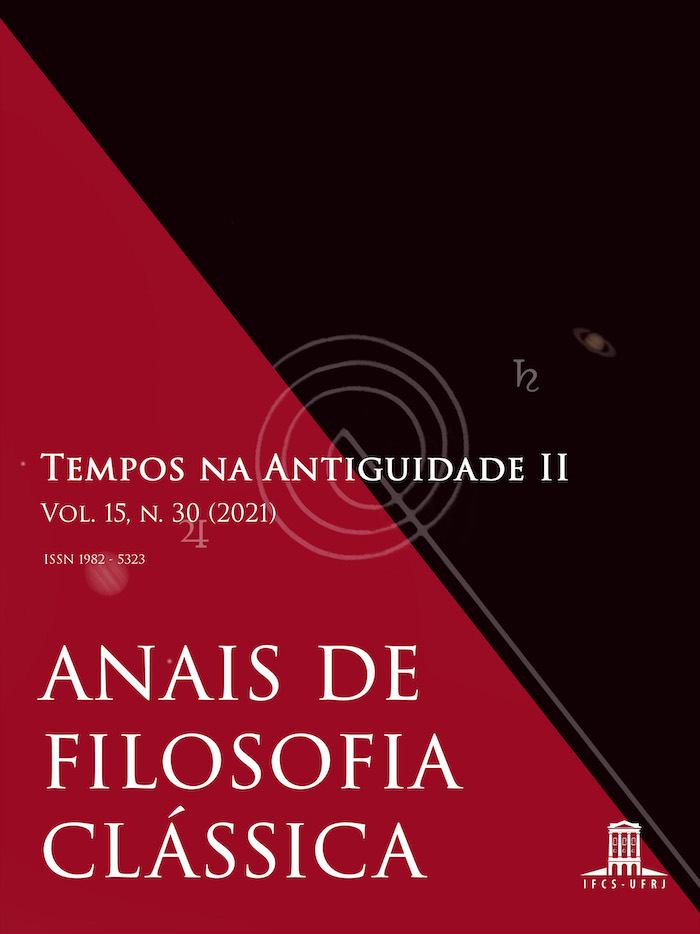Time and Narrative in Augustine’s City of God and Confessions
DOI:
https://doi.org/10.47661/afcl.v15i30.46052Parole chiave:
Agostinho, Tempo, Gênesis, NarrativaAbstract
This paper examines the connections between Augustine ́s conception of Time in two of his main works: City of God and Confession. The issue of Time is crucial for Augustine ́s narrative purposes, and it appears in his account of the history of mankind – the City of God, just as it appears in his account of his own history – the Confessions. Book XI in both works discuss time and creation, and put the narrative
of the book in the context of time as a whole. The two accounts proceed from similar motivations and in a similar method. But they at the same time complete each
other: the account of the Confessions is more detailed in the way it presents the problem and works out the solution step by step; the City of God seems to pick it up
from where Confessions leaves off and takes it a step further. In this paper, I first briefly sketch the concept of time as presented in Confessions XI. I continue by
pointing out how it is completed in the account in City of God I conclude by indicating how these two accounts together put into perspective Augustine’s concern with narrative, as well as his use of it.
Downloads
Riferimenti bibliografici
AUGUSTINE. Confessions. Translated by Henry Chadwick. Oxford: Oxford University Press, 1991.
AUGUSTINE. City of God. Translated byHenry Bettenson. London: Penguin Classics, 2003.


